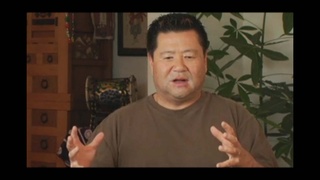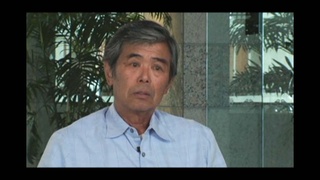Interviews
A Japanese American gardening dance
Yeah, Nobuko and some of us started saying, “Well, it’s time, instead of borrowing Kin records from Tokyo, we should start doing our own.” And so we began writing things – mixed Japanese/English and then finally in English. We’re still trying to get live orchestras – groups – to play it rather than tape that and play that record. It’s an on-going thing. One of them was the Gardener’s Dance, which, unless you’re born and raised here, you don’t have a clue what’s going on. People from Japan are going, “What is this?” because they have no experience of a Japanese gardener in California. So it was based on that. There was some resistance to it. Some gardeners thought that we were making fun of them, but the majority of gardeners who heard it, they really liked it. They thanked us for it, which is nice. But there was some objection to it because we used Japanese English.
Date: December 3, 2004
Location: California, US
Interviewer: Art Hansen, Sojin Kim
Contributed by: Watase Media Arts Center, Japanese American National Museum
Explore More Videos

Defining a Taiko player
(b.1951) Co-founder and managing director of San Jose Taiko.

Dancing in Japan as an American, in the US as Japanese
(1918-2023) Nisei Japanese kabuki dancer

Different learning style in Japan and the United States
(1918-2023) Nisei Japanese kabuki dancer

Both Japanese and American identities though Japanese dance
(1918-2023) Nisei Japanese kabuki dancer


Hardship to be a Kabuki dancer as a woman
(1918-2023) Nisei Japanese kabuki dancer

Do my best as a professional dancer
(1918-2023) Nisei Japanese kabuki dancer

Decision between becoming a minister or musician
(b. 1949) Musician and arts educator and adminstrator.

Starting Japanese American taiko their own way
(b. 1949) Musician and arts educator and adminstrator.

Japanese American taiko is not Japanese taiko
(b. 1949) Musician and arts educator and adminstrator.


Parents didn't accept me playing taiko in the beginning
(b. 1949) Musician and arts educator and adminstrator.

Performing the koto and taiko drum together, in Japan
(b. 1949) Musician and arts educator and adminstrator.

Taiko considered "Jazz" in the Philippines
(b. 1949) Musician and arts educator and adminstrator.

